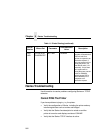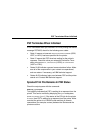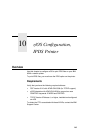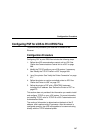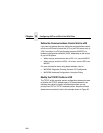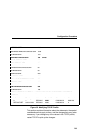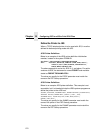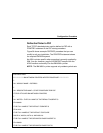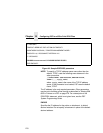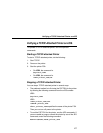
Chapter 10 Configuring PSF for z/OS to Print IPDS Files
270
For information about the TCP/IP profile and the statements
described in this section, refer to:
• IBM TCP/IP z/OS Customization and Administration Guide
• IBM TCP/IP Performance and Tuning Guide
DATABUFFERPOOLSIZE
The DATABUFFERPOOLSIZE statement defines the number and
size of the data buffers. For printing on TCP/IP-attached printers,
IBM recommends that you specify at least 160 data buffers, 32768
buffer size.
SMALLDATABUFFERPOOLSIZE
The SMALLDATABUFFERPOOLSIZE statement defines the
number of small data buffers. For printing on TCP/IP-attached
printers, IBM recommends that you specify at least 256 small data
buffers.
TINYDATABUFFERPOOLSIZE
The TINYDATABUFFERPOOLSIZE statement defines the number
of tiny data buffers. For printing on TCP/IP-attached printers, IBM
recommends that you specify at least 256 tiny data buffers.
KEEPALIVEOPTIONS
PSF relies on TCP to detect when a connection with a TCP/IP-
attached printer is no longer usable. When no data has been
exchanged between PSF and its connection partner, TCP sends
keep-alive probes to the connection partner periodically. These
periodic probes, called keep-alive transmissions, enable TCP to
discover when a connection is no longer usable even if the
connection partner is abruptly powered off or is no longer
accessible through the network.
The frequency of keep-alive transmissions is controlled by the
INTERVAL parameter on the KEEPALIVEOPTIONS statement.
The frequency applies to all TCP applications that direct TCP to
send keep-alive transmissions. The default frequency is after about
two hours of inactivity.



